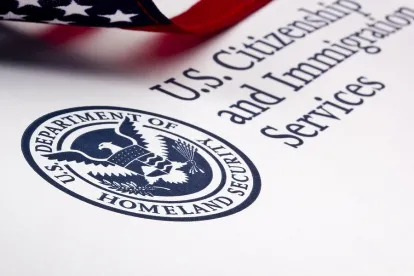On Wednesday, May 27, USCIS announced plans to substantially raise filing fees. By way of background, on November 14, 2019, the US Citizenship & Immigration Services (USCIS) published a notice of proposed rulemaking to increase filing fees by a weighted average of 21%. This rule was published after an internal review concluded that the current USCIS fee structure does not recover the costs of adjudication. Last week USCIS sent its implementation plans for these increases to the White House — an indication that higher fees for immigration benefits will soon be a reality.
While an average increase of 21% is significant, this does not tell the whole story. If a final rule takes effect as indicated in the proposed rule, the following are examples of some extraordinary fee increases that would take effect:
-
Naturalization applications would almost double — from $640 to $1,170;
-
Petitions for temporary transfer of managers/executives go from $460 to $815;
-
Petitions for the highest achievers with extraordinary ability increase from $460 to $715; and,
-
For the first time ever, a filing fee is proposed for the most vulnerable of applicants — those filing affirmative political asylum applications based on persecution in their home countries.
The new rule also proposes policy changes to make it more difficult for applicants to seek fee waivers based on low-income status.
It is unfortunate that virtually all of the congressionally appropriated fiscal year funding for immigration is used for enforcement and other non-benefit related activities. As a result, USCIS has to rely on the intake of filing fees for their operations. USCIS claims that the fees they collect fund nearly 96% of their budget. While other government agencies collect fees for certain services, USCIS is almost 100% fee-funded.
USCIS also claims that its pace of fee collections has slowed due to fewer filings and the temporary cessation of premium processing due to COVID-19. Immigration practitioners know that part of the reason for the slowdown in employment-based immigration filings is the arbitrary adjudication standard rampant with the current administration. USCIS’s restrictionist policy of denying immigration benefits without the support of law has led to a reduction in filings as employers look to other countries to place their global talent. If these filing fee increases are implemented, we hope these fee increases will come with a mandate to USCIS for a more streamlined and predictable adjudication standard.




 />i
/>i

